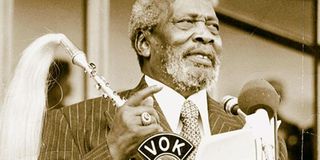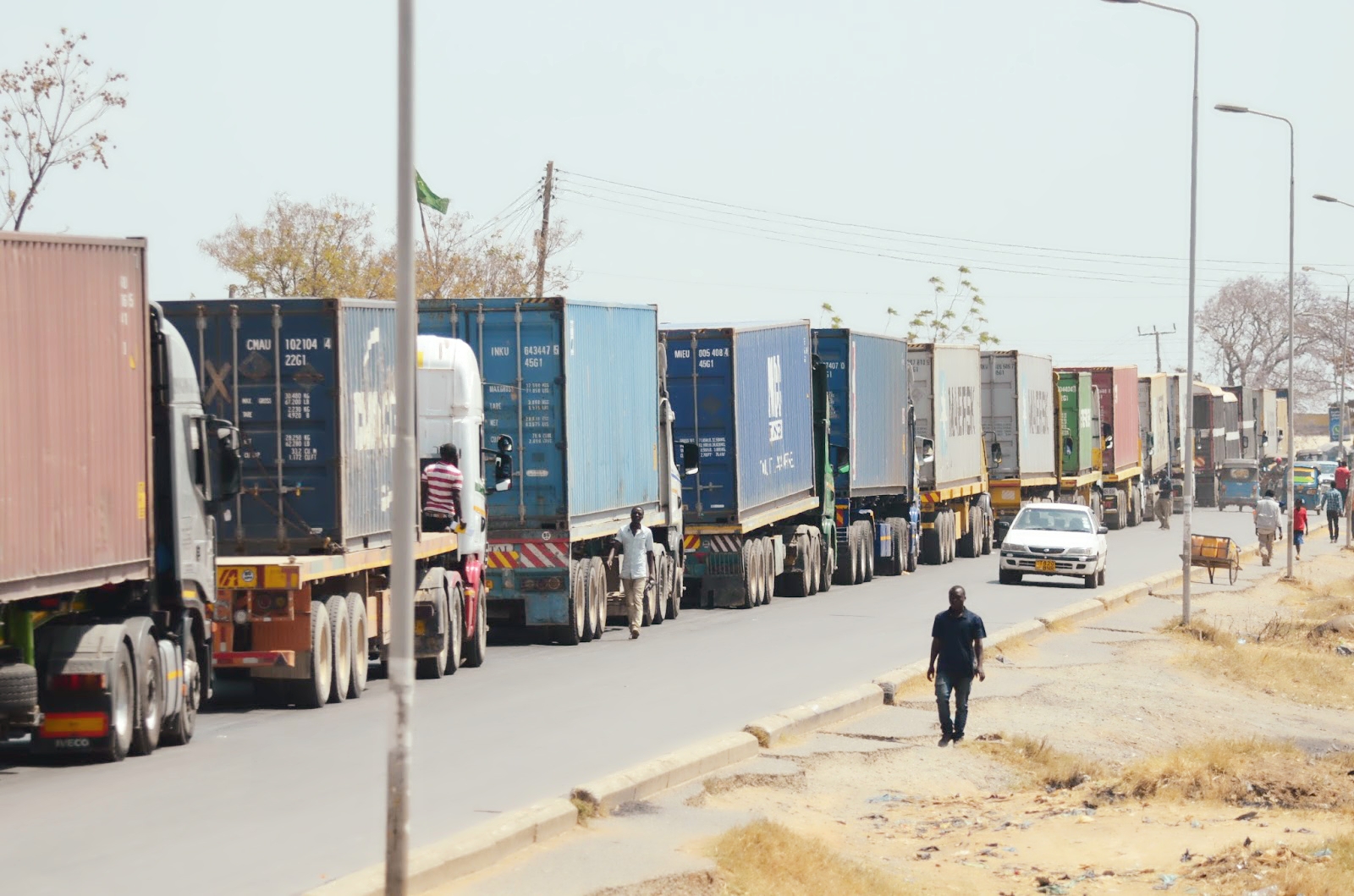The British spy who reigned in Jomo Kenyatta’s Cabinet

What you need to know:
- For starters, McKenzie was a white South African and surprisingly Kenyatta had retained him from the exiting colonial government as the minister for Agriculture and Animal Husbandry.
- Because of his local networks, McKenzie managed to be appointed director of various blue-chip companies and was in several parastatals.
- He was also the chairman of Cooper Motors Corporation (CMC) and is the man who brought in former Attorney-General Charles Njonjo into the league of billionaires.
When a pre-burial service was held in London for Jomo Kenyatta’s former Cabinet minister Bruce McKenzie, a few days after his private plane exploded as it overflew Kibiko market – four kilometers from Ngong Town – one man stood out in the crowd: Last colonial governor, Sir Malcolm McDonald.
Although the government of then UK Prime Minister James Callaghan was well represented, only McDonald – more than anyone else at the ceremony – knew McKenzie’s spy network in East Africa.
Exactly 41 years ago this week, after his plane was brought down in May 1978, by Uganda’s President Idi Amin, secret letters have also emerged which indicate that indeed McKenzie was working for some other forces inside the Cabinet.
How Kenyatta fell into this ruse is not clear: But he did.
Although the James Callaghan government, in a message read by Air Marshall Sir Geoffrey Tuttle, said Bruce “had died for Kenya – the country he had done so much for” – only a few knew McKenzie’s other activities.
If they knew, they would never have uttered a word in public. (Not then).
It is a story that explains how ties with the former colonial power continued, and it informs how British companies continued to dominate both commerce and industry in the country after independence.
It also informs how they got exclusive tenders and retained a foothold locally.
The secret letters authored by McDonald to some officers in the UK now indicate that McDonald may have personally influenced the choice of McKenzie as a spy within the Cabinet and for his continued stay in Kenya despite some distrust from key officers in London.
SUPERB SERVANT
For starters, McKenzie was a white South African and surprisingly Kenyatta had retained him from the exiting colonial government as the minister for Agriculture and Animal Husbandry.
But he was more than that and was the ultimate tenderpreneur.
In a letter dated September 21, 1964, and now at the National Archives marked “Private and Personal”, McDonald tells Duncan Sandys, the Secretary of State for Commonwealth Relations: “Between you and me, I am told that your new advisers about Kenya distrust Bruce McKenzie and are liable to be prejudiced against anything that he suggests.”
McDonald sought to explain the genesis of that mistrust as a fallout between McKenzie and a former British High Commissioner to Kenya, Geoffrey de Freitas.
Even though it is not clear why the two disliked each other, McDonald says: “Possibly it flows from a very strong dislike of Bruce which Geoffrey de Freitas developed whilst he was High Commissioner here, and which he may have allowed to colour his advice to London on policies concerning Bruce’s ministry.”
The policies in question concerned the redistribution of agriculture land in the white highlands.
McKenzie was insisting on UK providing enough money to purchase the white-owned farms for redistribution to locals but Britain was for piece-meal take-over.
This explains why the willing-buyer willing-seller policy was flung onto Kenyans and why the land question is still a problem, more than 50 years later.
McDonald told Sandys that it was unfortunate that the two fell apart.
“It was most unfortunate that a mutual antipathy grew between Bruce and Geoffrey whilst the latter was here, and I do not necessarily suggest that the fault was all on Geoffrey’s side – though from my own knowledge of the beginnings of their quarrel I think he (Geoffrey) was mostly to blame.
His prejudice against Bruce was one of the several very serious misjudgements that he made in Nairobi, which caused his mission here to be in some ways … unfortunate.”
Although McDonald does not dwell much on the details of what Geoffrey de Freitas failed to do in Nairobi, he tells the Colonial Secretary: “It is easy to find fault with Bruce. I could fill a page with a catalogue of his defects, just as he could no doubt fill a page with a catalogue of mine. But he has many other qualities and is a superb servant of Kenya and of friendship between Kenya and Britain.
Indeed during the last two or three years he had done more than any other white man in this country to maintain the latter cause and he is still doing “more than anyone else”.
Besides being a government minister, McDonald does not explain what “more work” McKenzie was doing “more than anyone else” for Britain.
What we now know is that McKenzie, after he was appointed to the Kenyatta Cabinet, started to earn respect from several British people who knew what he was up to and some said as much.
He was also helping British firms get lucrative tenders inside the Kenyatta government.
MONEY MAKER
For instance, McDonald told Sandys in a telling note: “A lot of individuals who used to criticise him now admit that fact, and they have become his staunch admirers in spite of the difficult abruptness in his manner which sometimes makes him unnecessary enemies. The more we can back him in his policies, the better things will be between Britain and Kenya.”
And as a final world, McDonald told Sandys on McKenzie: “Another of his achievements, he has Kenyatta’s and most other ministers’ firm trust and friendship.”
Interestingly the letter, which was meant for Sandys, was also copied to the Duke of Devonshire, the man who had officially complained that McKenzie had talked of discreet matters concerning who would become Kenyatta’s bodyguard “to all sorts of people” in London.
A former ally of McKenzie once told me that the Cabinet minister was a “loud mouth”.
Because of his local networks, McKenzie managed to be appointed director of various blue-chip companies and was in several parastatals.
His word on the locals suitable to join the boardrooms of British companies was treated as final. No wonder McKenzie became one of the richest Kenyans with his firm DCK Kenya Ltd owning huge tracts of land in the Rift Valley and shares in several companies.
He was also the chairman of Cooper Motors Corporation (CMC) and is the man who brought in former Attorney-General Charles Njonjo into the league of billionaires.
It was these activities – especially the supply of Land Rovers and security systems to the government – that saw him become a key contact of British Empire in East Africa.
Some sources claim that he also worked for Israeli companies which were interested in setting up base in Kenya. It also led to his demise.
McKenzie doubled as the East African agent for a giant British electronics firm, based in London, dealing in military and police telecommunications and when he died, he was accompanied by Keith Savage, a leading Freemason and the managing director of Wilken Communications.
But he met his match in Uganda’s dictator Idi Amin, a man he ironically helped to get international recognition.
WORTHY OPPONENT
On March 3, 1971, it was McKenzie who urged Britain to supply Amin with security equipment quickly, saying the new Ugandan president was relying primarily on Israel.
He also flew to Israel to see Prime Minister Golda Meir and General Moshe Dayan on behalf of Amin.
Despite that help, and seven years later, Amin had McKenzie killed, by placing a bomb on his plane as he left Uganda after a brief visit.
The visit was ironically planned to try and have Amin purchase some weapons and security equipment. McKenzie lived dangerous in the world of espionage.
There is still the unresolved case of August 23, 1965, when a man crawled into McKenzie’s Cottage at Diani Beach.
Although police said that he attempted to take off with the minister’s keys, McKenzie, who always carried a loaded pistol, quickly noticed the intruder and shot him dead.
Even before the police started investigations, McKenzie called his Cabinet colleague Charles Njonjo and informed him about the incident.
Njonjo quickly drafted a statement: “I wish it to be known in case there should be any rumour to the contrary that this incident will be investigated by the police in the same way as any other similar occurrence and the result of the police inquiry will be submitted to me in accordance with the law.”
The man was identified as Mkungu Hassan. One question which has never been answered was who had sent Mkungu Hassan.
And it is not clear why he would crawl to McKenzie’s cabin to just steal some keys.
Interestingly, the report of the inquest was not made public and McKenzie was absolved.
Later attempts by Central Nyanza senator DO Makasembo to have the matter discussed by the Senate were frustrated by Speaker Muinga Chokwe.
“This is a very serious matter because when a European kills an African it is taken lightly but when an African kills a European the government takes the matter seriously,” Makasembo told the Senate before the Speaker cut him short.
HIS WORK LIVES ON
Makasembo’s motion read: "That in view of the apparent public disaffection with the result of the inquest and subsequent court ruling in connection with the shooting and killing of Mkungu Hassan, this Senate calls upon the government to institute immediately an Independent Commission of inquiry into the case.”
A similar attempt by then Rendille Representative, ED Godana, at the House was thwarted by Humphrey Slade.
If they had succeeded, they would have blown the cover of the activities of Bruce McKenzie and the reasons why he got away with murder.
Some 41 years after his death, McKenzie’s policies still inform Kenya’s relations with Britain and Israel. It was a network that he built for several years. But only snippets of his work continue to crop up, now and then



